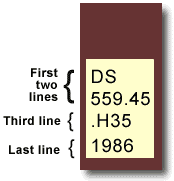
Online archive of eBooks and complete backruns of scholarly journals in a variety of academic fields.
Full text access to scholarly humanities, social sciences, and mathematics journals.
Early English Books Online (EEBO) is the definitive online collection of early printed works in English. With over 125,000 titles from before 1700, the EEBO contains virtually every work printed in England, Ireland, Scotland, Wales and British North America and works in English printed elsewhere from 1473-1700.
Indexing and full text of hundreds of journals, books and other published sources from around the world on various humanities topics.
Indexes books, essay collections and bibliographies on literature, languages, linguistics and folklore.
Use BrowZine to find journals available at WPI. Search by journal title or browse by subject to find relevant journals.






Within most databases, click on the FullTextFinder link to get options for obtaining the full text of the article.
If the Gordon Library does not have the full text of a source, request a copy from another library: ILLiad Interlibrary Loan.
Books are vital sources of literature scholarship. To find books at the Gordon Library, type your keywords into the WPI Library Search. Use the drop-down menu to the right of the search box to select "Books & Media." You can use this search to find copies of the literature you are studying, as well as collections of essays analyzing works of literature.

Our Interlibrary Loan service allows WPI students and faculty to request items from other libraries free of charge.
The Gordon Library organizes its print books using the LC (Library of Congress) Classification System. Letters and numbers denote subject and location in the collection. Call numbers are typically visible on the spines of the books in the library.
Here is an example of a call number:

The first two lines describe the subject of the book.
The third line represents the author's last name.
The last line represents the date of publication.
Most Language and Literature books are classified under P in the LC Classification System.
For more call number classifications, see the Library of Congress Classification Outline.